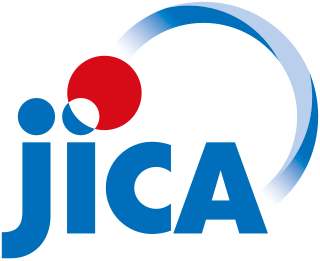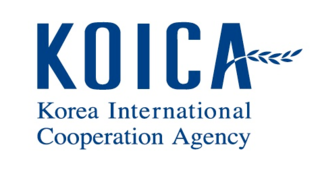
The Center for International Forestry Research (CIFOR) is a non-profit scientific research organization that conducts research on the use and management of forests with a focus on tropical forests in developing countries. CIFOR, which merged with World Agroforestry on Jan. 1, 2019, is the forestry and agroforestry research center of the Consultative Group on International Agricultural Research (CGIAR), a network of 15 research centers around the world that focus on agricultural research for sustainable development, working closely with governments and other partners to help develop evidence-based solutions to problems related to sustainable agriculture and natural resource management.

The French Development Agency is a public financial institution that implements the policy defined by the French Government. It works to fight poverty and promote sustainable development. This public institution is active in Africa, Asia, the Middle East, Latin America, the Caribbean and the French overseas territories, where it finances and supports projects that improve living conditions for populations, promote economic growth and protect the planet.

Development aid is a type of foreign/international/overseas aid given by governments and other agencies to support the economic, environmental, social, and political development of developing countries. Closely related concepts include: developmental aid, development assistance, official development assistance, development policy, development cooperation and technical assistance. It is distinguished from humanitarian aid by aiming at a sustained improvement in the conditions in a developing country, rather than short-term relief. Development aid is thus widely seen as a major way to meet Sustainable Development Goal 1 for the developing nations.
Danish International Development Agency (DANIDA) is the brand used by the Ministry of Foreign Affairs of Denmark when it provides humanitarian aid and development assistance to other countries, with focus on developing countries. There is no distinct Danida organisation within the Ministry.

The Japan International Cooperation Agency is a governmental agency that delivers the bulk of Official Development Assistance (ODA) for the government of Japan. It is chartered with assisting economic and social growth in developing countries, and the promotion of international cooperation. According to the OECD, Japan’s total official development assistance (ODA) increased in 2022 due to an increase in its bilateral lending, which includes support to Ukraine. ODA represented 0.39% of gross national income (GNI). The OECD's Development Assistance Committee published a peer review of Japan's development co-operation in October 2020. It was led by Dr. Shinichi Kataoka, the former President of the International University of Japan, from 2015 to 2022. On 1 April 2022, Professor Akihiko Tanaka assumed the presidency of the Japan International Cooperation Agency (JICA) as the successor to Professor Shinichi Kataoka.

The Swiss Agency for Development and Cooperation (SDC) is an office-level agency in the federal administration of Switzerland, and a part of the Federal Department of Foreign Affairs. Together with other federal offices, SDC is responsible for overall coordination of Swiss international development activities and cooperation with Eastern Europe, as well as humanitarian aid.
The Deutsche Gesellschaft für Internationale Zusammenarbeit (GIZ) GmbH, often simply shortened to GIZ, is the main German development agency. It is headquartered in Bonn and Eschborn and provides services in the field of international development cooperation and international education work. The organization's self-declared goal is to deliver effective solutions that offer people better prospects and sustainably improve their living conditions.

The Organisation for Economic Co-operation and Development's (OECD) Development Assistance Committee (DAC) is a forum to discuss issues surrounding aid, development and poverty reduction in developing countries. It describes itself as being the "venue and voice" of the world's major donor countries.

Fiji and South Korea established official diplomatic relations in January 1971, Korea having recognised Fiji's accession to independence the previous year. There is a South Korean embassy in Suva and a Fijian embassy in Seoul. Fiji opened its embassy in Seoul in July 2012 to "foster trade and investment" and to "promote people-to-people exchanges".
South–South cooperation (SSC) is a term historically used by policymakers and academics to describe the exchange of resources, technology, and knowledge between developing countries, also known as countries of the Global South. The Global South is making increasingly significant contributions to global development. The economic and geopolitical relevance of many countries has grown. In the past, south-south cooperation focused on sharing knowledge and building capacities, but the countries of the Global South and new financial institutions have recently also become increasingly active in development finance.

The Korea International Cooperation Agency was established in 1991 by the Ministry of Foreign Affairs of South Korea as a governmental organization for Official Development Assistance (ODA). KOICA's goal is to enhance the effectiveness of South Korea's grant aid programs for developing countries by implementing the government's grant aid and technical cooperation programs. KOICA is led by three-year-term president of the board who is appointed by the President upon the recommendation of Foreign Minister.
The Regional Forum on Environment and Health in Southeast and East Asian Countries is a global framework for action provided by Agenda 21 of the 1992 United Nations Conference on Environment and Development; the Johannesburg Plan of Implementation of 2002 World Summit on Sustainable Development; the Millennium Development Goals of the United Nations and the recommendations of the fifth Ministerial Conference on Environment and Development in Asia and the Pacific on enhancing the environmental sustainability of economic growth. The second Ministerial Regional Forum was held 14–16 July 2010 in Jeju Province, South Korea. The forum is held every three years; the first was in Bangkok in August 2007.

World Friends Korea is a South Korean government-run overseas volunteer program that was inaugurated on May 7, 2009. Prior to this program, the South Korean government conducted various types of volunteer programs under three different government ministries. As establishing "World Friends Korea", the government of Korea aims in unifying the different programs under a single overseas volunteer system. The program is similar to the American Peace Corps program.

The KDI School of Public Policy and Management is a government-run graduate school located in Sejong City, South Korea and is affiliated to the Korea Development Institute (KDI) and a member of the National Research Council for Economics, Humanities, and Social Sciences. The school was first established in 1997 in Dongdaemun District, Seoul, before moving to Sejong City in 2015 under the South Korean government's actions to establish the city as the de facto administrative capital of the country. The school specializes in fostering international experts in the field of development economics and public policy.
The Korea Human Rights Foundation (KHRF) was established in 1999 by prominent human rights experts, activists, lawyers, and academics following the commemorative events of the 50th anniversary of the Universal Declaration of Human Rights, the KHRF strives to promote solidarity for empowerment in the realm of human rights in Korea.

The Millennium Development Goals Achievement Fund (MDG-F) was an international cooperation mechanism committed to eradicating poverty and inequality and to accelerating progress towards the Millennium Development Goals (MDGs) worldwide. Its aim was to improve livelihoods and to influence public policy, which made it responsive to the needs of the poorest populations.

The World Bank is an international financial institution that provides loans and grants to the governments of low- and middle-income countries for the purpose of pursuing capital projects. The World Bank is the collective name for the International Bank for Reconstruction and Development (IBRD) and International Development Association (IDA), two of five international organizations owned by the World Bank Group. It was established along with the International Monetary Fund at the 1944 Bretton Woods Conference. After a slow start, its first loan was to France in 1947. In the 1970s, it focused on loans to developing world countries, shifting away from that mission in the 1980s. For the last 30 years, it has included NGOs and environmental groups in its loan portfolio. Its loan strategy is influenced by the United Nations' Sustainable Development Goals, as well as environmental and social safeguards.

Irish Aid is the Government of Ireland's official international development aid programme. Irish Aid is managed by the Development Co-Operation and Africa Division (DCAD) of the Department of Foreign Affairs (DFA). According to the OECD, Ireland’s total ODA increased in 2022, mostly due to higher in-donor refugee costs and higher contributions to international organisations. ODA represented 0.64% of gross national income (GNI). The Irish Aid programme is an integral part of Ireland's foreign policy.

South Korea and the countries that comprise Africa have a history of political, economic, militaristic, social, and cultural relations with one another since South Korea's establishment.














